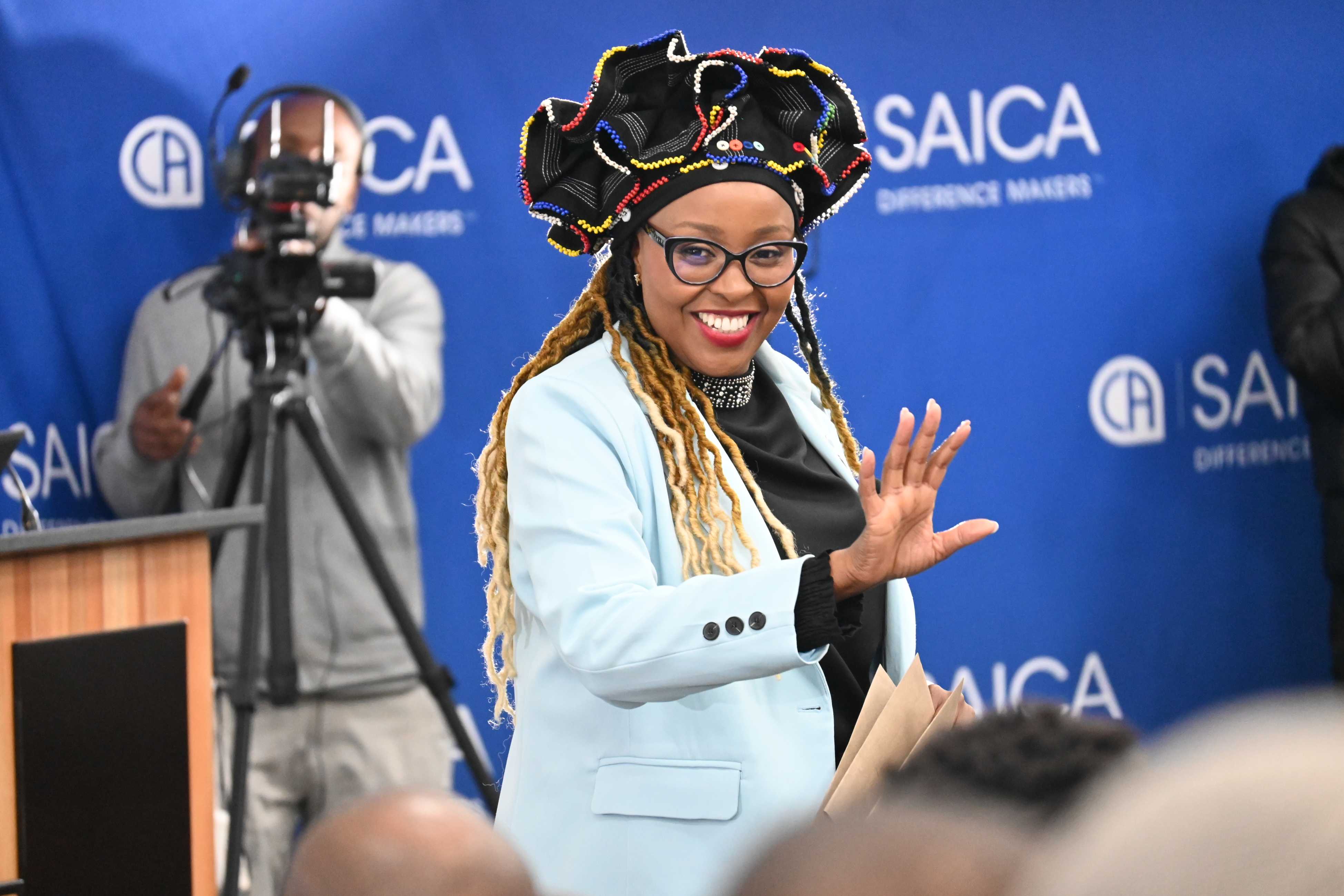SAICA CEO URGES INNOVATION AND COLLABORATION IN BUILDING A SUSTAINABLE DIGITAL FUTURE AT WSU
The South African Institute of Chartered Accountants (SAICA), in partnership with Walter Sisulu University (WSU), hosted a compelling public lecture under the theme “Sustainability Through the Convergence of Human, Environmental and Digital Capitals” at WSU’s Zamukulungisa Campus on Wednesday.
SAICA Chief Executive Officer, Patricia Stock delivered the keynote address, urging professionals, academics, and students to boldly engage with digital transformation to build a future where technology enhances human potential and environmental sustainability.
“This timely address explores how we can all make a difference to integrate people, planet, and technology to build a more resilient and inclusive future, for the profession and the country at large,” said Stock, reflecting the event’s strong alignment with the United Nations’ Sustainable Development Goal 9 (Industry, Innovation and Infrastructure).
Highlighting the rapid global investment in frontier technologies, Stock emphasised the urgency for Africa to actively participate in shaping the digital landscape.
“If you’re not doing anything in this space, if you are not embracing it, you don’t want to be there to help,” she cautioned, pointing to the continent’s pressing challenges around inequality, unemployment, and underdeveloped infrastructure.
Stock called for a deliberate move from passive retention to bold, collaborative innovation, particularly in leveraging Africa’s green energy potential and the African Continental Free Trade Agreement. She urged academic institutions such as WSU to align their strategies with the public interest by ensuring accessibility, relevance, and ethical responsibility in their curriculum and operations.
“Africa must stop trying to solve its challenges in isolation. Collaboration across the continent is key,” she said, encouraging the integration of artificial intelligence and digital tools not only in business but also in addressing societal and environmental problems.
Representing WSU leadership, Deputy Vice-Chancellor for Teaching and Learning, Professor Margaret Linington, reaffirmed the university’s commitment to sustainable, transformative education.
She echoed the lecture’s core message, stating, “We must ensure that technology serves people and the planet and not the other way around.”
Linington stressed the importance of building interdisciplinary partnerships that connect academia, industry, and government, positioning WSU as a driver of innovation rooted in community needs. “Our students must be prepared to lead innovation that is inclusive, ethical, and grounded in the communities we serve,” she added, underscoring WSU’s alignment with SDG 4 (Quality Education).
The lecture formed part of a broader engagement initiative aimed at empowering future-ready graduates and promoting dialogue between the academic and professional sectors to support inclusive and sustainable development in South Africa and beyond.
By Ongezwa Sigodi

